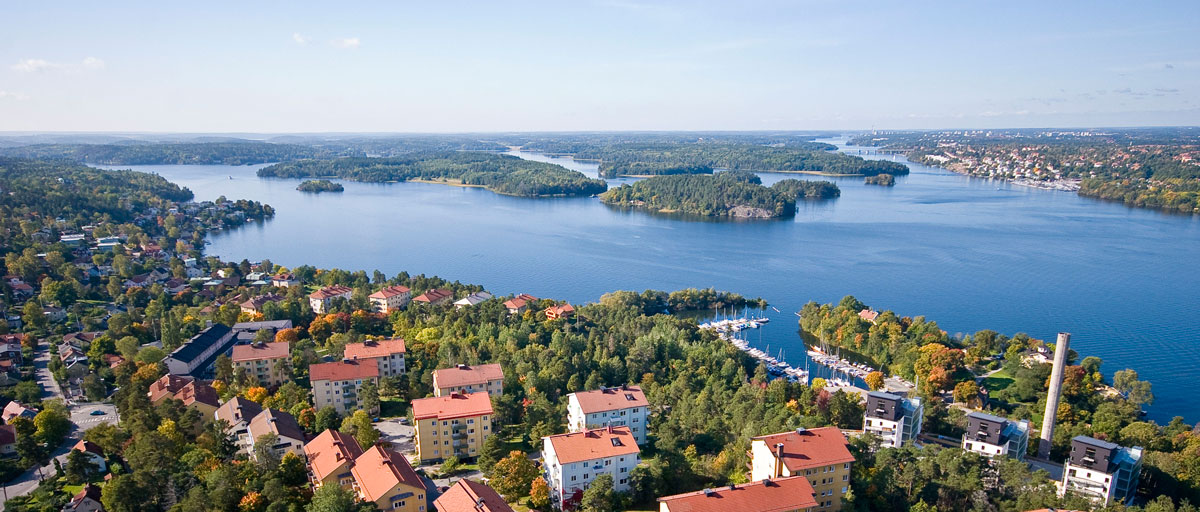
On 7 November the urban research theme gathered a diverse group of actors to do a joint inventory of knowledge and identify future challenges in the Mälardalen region. Photo: U. Grünbaum/Azote
Urban research conference
Joining together for the urban future of Mälardalen in Sweden
A full day conference gathered a diverse group of actors to do a joint inventory of knowledge and identify future challenges
- A diverse group of 70 actors including scientists, municipal planners, NGOs, grass root activists, and state agencies met in Stockholm
- One main objective was to disseminate new knowledge and discuss research findings with regional actors
- This was the beginning of a strong regional platform for co-creation of knowledge and tackling the challenges facing the region
On 7 November the urban research theme at the Centre organized a conference to discuss the future of the Mälaren region together with diverse group of 70 actors from the region, including municipal planners, NGOs, grass root activists, and representatives from associations and state agencies.
Download the conference documentation Pdf, 4.3 MB.
Pdf, 4.3 MB.
This rapidly changing region has over the last ten years been the basis for urban, and increasingly urban-rural, research at the centre and is now also one of the regional case studies within the research programme PECS.
The conference was set up to meet several objectives:
- To disseminate new knowledge and discuss research findings.
- To support and consolidate the regional network for discussing social-ecological perspectives on sustainable development.
- To maintain good relations with other actors and ensuring that the researchers at SRC are up to date with knowledge development and needs.
- To identify, from different perspectives, the key challenges facing the region.
"Maintaining good contacts with the regional actors is vital for our research, and Stockholm Resilience Centre has an important task in presenting and discussing new research findings," says Sara Borgström, centre researcher and coordinator for the conference.
The latest from the centre
The day began with short presentations of the research at the centre, including among other things regional analyses of ecosystem services, an assessment of the current management of Lake Mälaren and how it can be strengthened to tackle climate change, what a transformation to a fossil fuel free society 2050 might mean for the region and how resilience thinking can be used within physical planning
The presentations can be downloaded here
After the researchers' presentations followed presentations from other actors in the region.
"As scientific knowledge is but one piece of a large puzzle we also invited three actors to present their different perspectives on future challenges in the region and plausible social-ecological pathways towards more ecologically sustainable development," says Sara.
Identifying challenges and moving forward
The afternoon was spent in smaller thematic groups discussing challenges, knowledge gaps and ways forward. The groups were "urban planning and resilience," "future food production in the light of global change," "biodiversity and ecosystem services and water issues."
The need for collaboration between actors, sectors and administrative levels was one of the major challenges that were voiced by all groups. Here knowledge is needed about how to best match often slow collaborative processes to the speed of other processes, how to best share information and jointly collect new data, and align the needs for collaboration with the current funding situation.
"This was just the beginning," Sara concludes, "a strong regional platform for co-creation of knowledge and tackling the very real challenges facing the region is very much needed. Conferences like this on a regular basis is one component, but we need to find more ways to interact."






